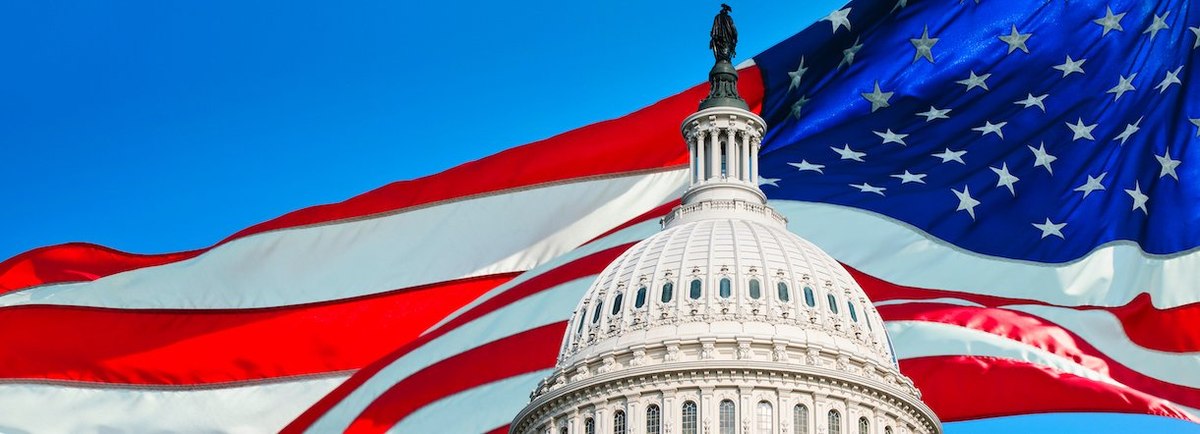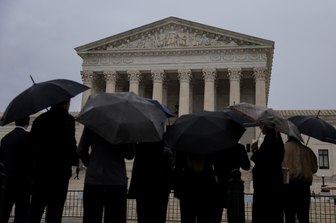Most Americans are supportive of democracy and think dictatorship would be bad for the United States. These views are fairly consistent between Democrats and Republicans, but younger adults say they're less committed to democracy.
Only 4% of Americans say it would be a good thing for the U.S. to have a dictator in charge, while 80% disagree. That includes 89% of 2020 Biden voters and 87% of 2020 Trump voters.
Americans had similar responses when asked if they agreed that "Democracy is no longer a viable system, and America should explore alternative forms of government to ensure stability and progress." Just 15% said they either strongly or somewhat agreed, while 59% strongly or somewhat disagreed. That includes majorities of Democrats, Independents, and Republicans. 56% of Americans both think dictatorship would be bad for the U.S. and disagree that democracy is no longer viable; 59% are both down on dictatorship and agree that democracy is the greatest form of government.
Age is more strongly associated with different views on democracy than political identity is. Among Americans 65 or older, just 5% agree that democracy is no longer a viable system and America should explore alternatives to democracy, while 82% disagree. Americans 18-29, on the other hand, are more closely split: 31% agree and 41% disagree.
Americans are a little more ambivalent about how well democracy is functioning for the U.S. While only 11% say democracy is working "not at all well" in the U.S. today, another 33% say it's working "not too well." A majority (56%) say democracy is working either "very well" or "somewhat well" for the U.S.
Support for democracy among Americans is higher than it was several years ago. When YouGov asked Americans in 2018 whether democracy was the greatest form of government, 59% agreed. In 2023, that has risen to 67%. This sentiment is now higher across the political spectrum and across age groups.
Most Americans don't expect the U.S. to be ruled by a dictator in their lifetimes: 18% say it will, while 57% say it won't and 25% aren't sure.
This is an identical question to one asked by Gallup in April 1938. Little has changed: At that time, 17% of Americans said they expect a U.S. dictator in their lifetime.
Expectation of a future U.S. dictator is slightly higher among the 44% of Americans who say democracy in the U.S. today is working either "not too well" or "not at all well." 20% of them expect a dictator in their lifetime, compared to 16% of those who say U.S. democracy is working very or somewhat well.
This gap is particularly large among older Americans. Among Americans 65 or older with positive feelings about how U.S. democracy is working, just 5% expect to see a dictator in their lifetimes, compared to 16% of Americans 65 or older with negative feelings about how U.S. democracy is working.
See the toplines and crosstabs from the Economist/YouGov poll conducted on December 16 - 18, 2023 among 1,500 U.S. adult citizens.
Methodology: Respondents were selected from YouGov’s opt-in panel using sample matching. A random sample (stratified by gender, age, race, education, geographic region, and voter registration) was selected from the 2019 American Community Survey. The sample was weighted according to gender, age, race, education, 2020 election turnout and presidential vote, baseline party identification, and current voter registration status. Demographic weighting targets come from the 2019 American Community Survey. Baseline party identification is the respondent’s most recent answer given prior to November 1, 2022, and is weighted to the estimated distribution at that time (33% Democratic, 31% Republican). The margin of error for the overall sample is approximately 3.5%.
Image: Getty (Tetra Images)










